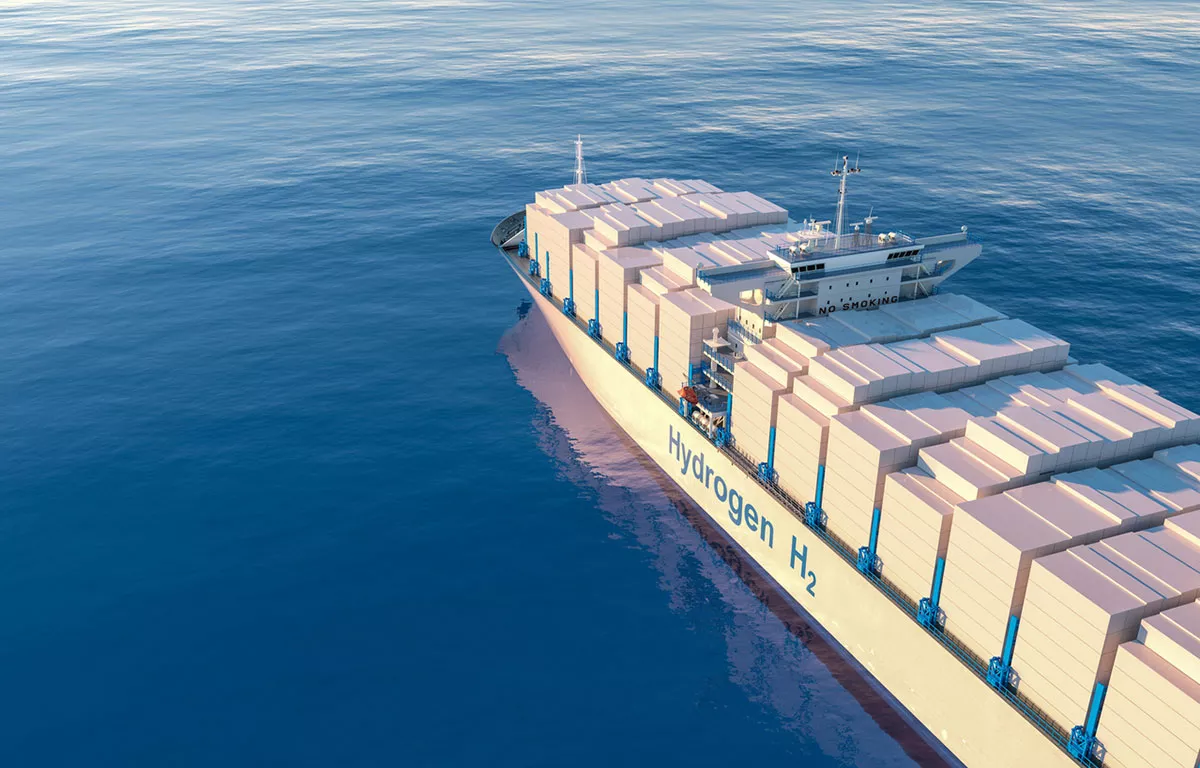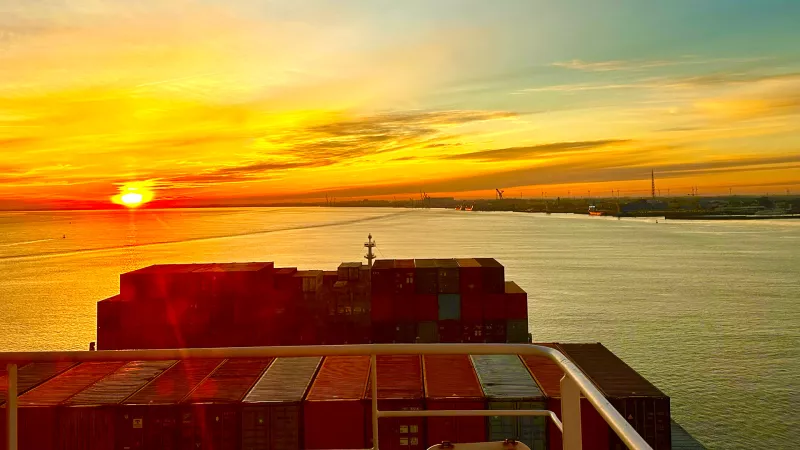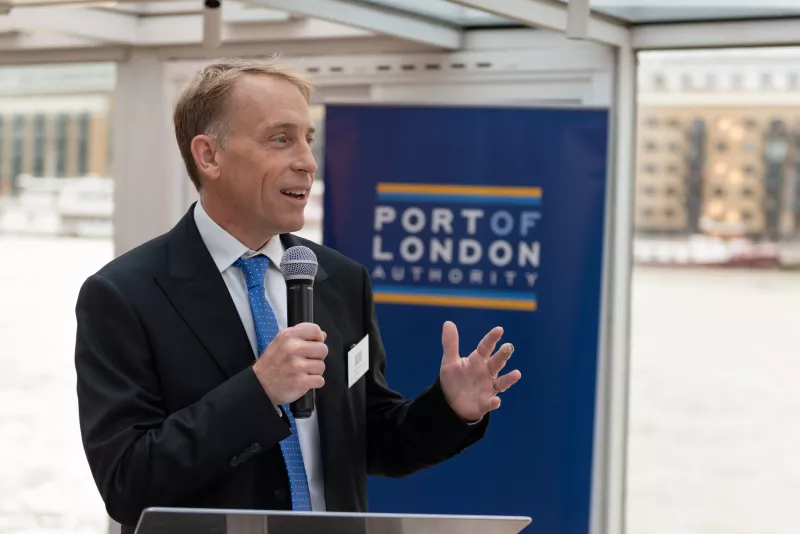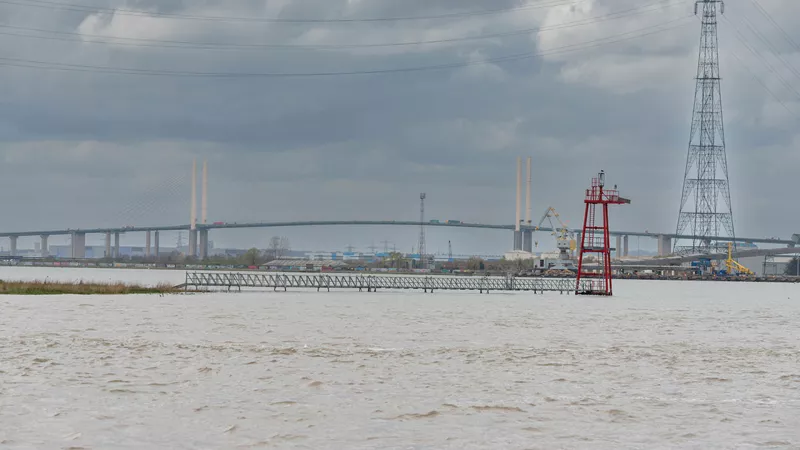Live Tides
NOTICES TO MARINERS
Charts & Surveys

Incident reporting
Life-threatening emergencies on the river:
Call 999 and ask for the Coastguard
For near miss, safety observations and incident reporting click below
UK-Led Maritime Hydrogen Highway charts course for cleaner ports and shipping

A consortium led by the UK’s largest port, the Port of London Authority (PLA), has concluded a three-year programme investigating the Maritime Hydrogen Highway, which proves clean hydrogen can power the maritime sector safely, affordably, and at scale.
Funded by Maritime Research and Innovation UK (MarRI-UK), supported by the Department for Transport (DfT), the £1.2 million project explored the entire hydrogen supply chain - from offshore production and shipping to safe port-side handling and refuelling - with the goal of accelerating the UK’s transition to Net Zero.
Reaching Net Zero by 2040 is part of the PLA’s long-term strategy, Thames Vision, and the transition to low and zero carbon fuels on the river is key to achieving this ambition.
As the PLA’s CEO, Robin Mortimer, says: “This programme is about taking a lead on maritime decarbonisation. From floating wind to autonomous hydrogen vessels, we’ve demonstrated that that there is a theoretically viable option for green hydrogen generation and transportation, using existing infrastructure. It also highlighted the essential requirements for a regulatory framework, investment, and collaboration to enable this energy transition, which is core to future decarbonisation.”
Key findings show that green hydrogen produced from UK-owned floating wind farms can be delivered by autonomous vessels to ports like London’s and used to power everything from port equipment and vessels to HGVs and local logistics fleets. What’s more, it can do so at nearly half the cost of other sources of hydrogen. The project found that this model:
- Cuts greenhouse gas emissions across maritime and land-based transport
- Reduces the need for pipeline infrastructure by using mobile container transport
- Produces hydrogen at £6–£7 per kilogram, compared to £14 via other sources
MarRI-UK's Director, Sarah-Louise Keegan, says:
“MarRI-UK is proud to have supported the Hydrogen Highway project, which has laid vital groundwork for decarbonising the UK’s maritime sector. By demonstrating how clean fuels and smart technologies can be integrated into port and shipping operations, it offers a clear path toward a low-carbon future. This forward-looking collaboration highlights the critical role of coordinated investment and innovation in meeting our climate commitments.”
The Hydrogen Highway was led by PLA with contributions from:
- OS Energy, University of Strathclyde, University of Kent, University of Birmingham, Newcastle Marine Services, and ORE Catapult
- the Health and Safety Executive (HSE), which advised on safety and regulation.
Together, they tackled seven interconnected work packages, from developing autonomous vessels and port integration frameworks, to mapping demand across the Thames and building economic models for UK-wide hydrogen rollout.
Robin Mortimer, the PLA’s CEO, concludes: “Hydrogen presents a huge opportunity for the UK’s port cities. This work shows how we can use our existing infrastructure and natural resources to deliver low-carbon energy exactly where it’s needed.
For the Port of London, it also supports our path to sustainable growth, supporting jobs, trade and innovation while cutting emissions on the river and beyond.”
While the technology is ready, the project also identified urgent regulatory and investment gaps. The PLA and partners are now calling for:
- A clear UK regulatory framework for hydrogen maritime operations
- Investment support for early-stage hydrogen port infrastructure
- Continued cross-sector collaboration to build a commercially viable hydrogen economy
Related content
Discover






